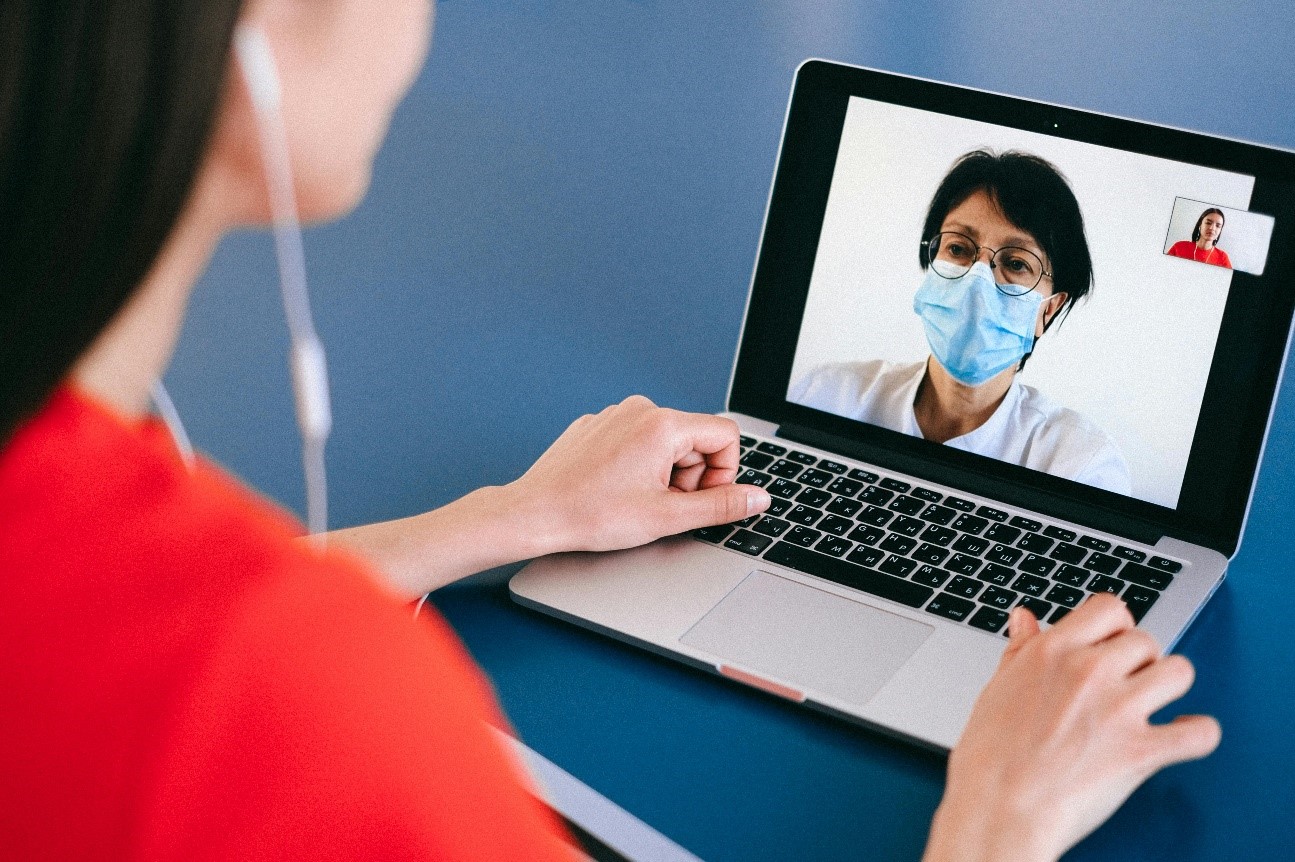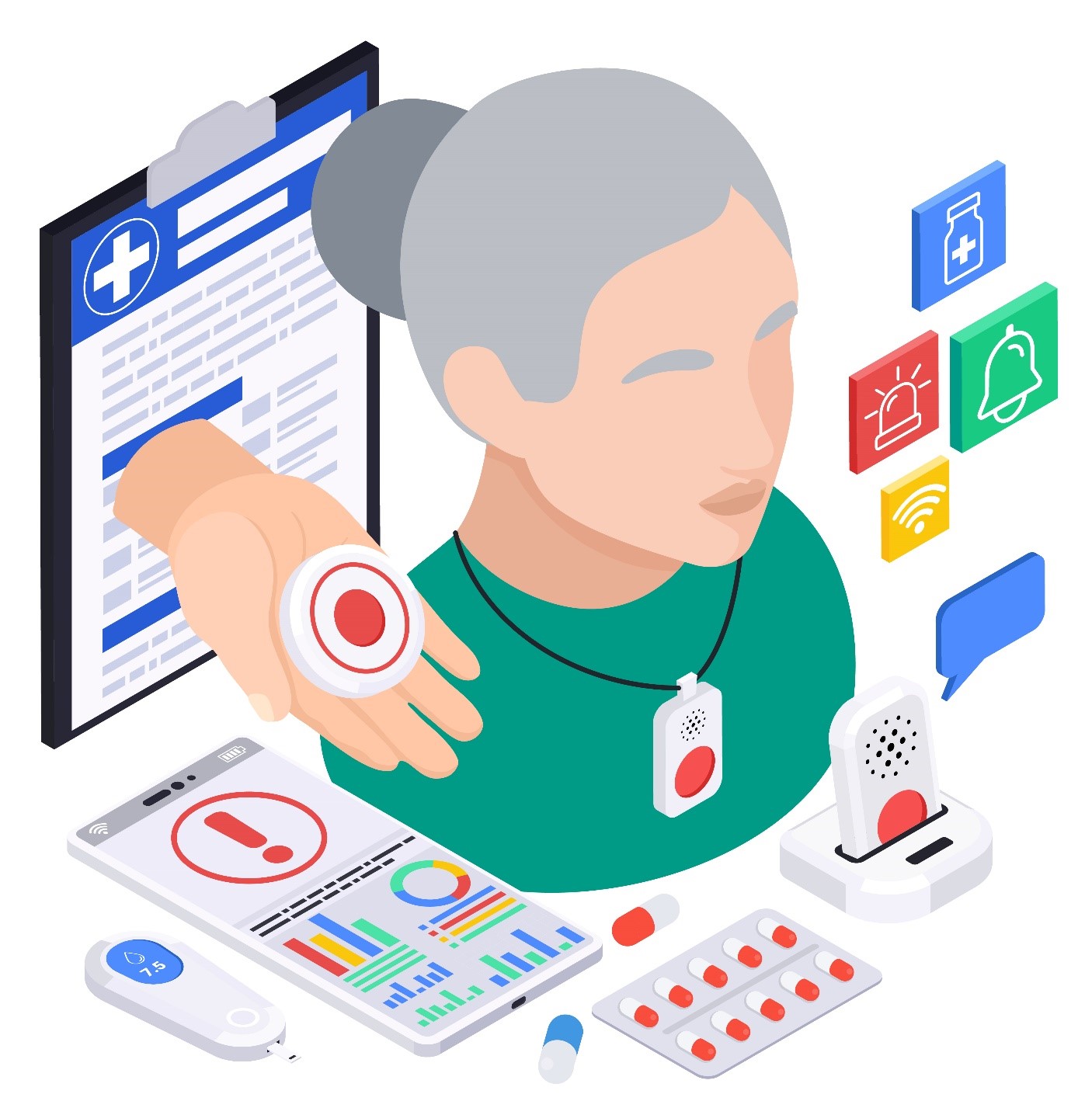The aging population is a global phenomenon. According to the World Health Organization (WHO), the number of people aged 60 years and older is expected to double by 2050, reaching 2.1 billion. This demographic shift presents significant challenges for healthcare systems worldwide, necessitating the development and adoption of new technologies to manage elderly health effectively.
Key Technologies Transforming Elderly Health Management
1. Telemedicine and Telehealth
Telemedicine and telehealth have emerged as critical components of elderly health management. These technologies enable remote consultations, reducing the need for seniors to travel to healthcare facilities. Telemedicine platforms allow healthcare providers to monitor chronic conditions, prescribe medications, and offer medical advice through video calls and online platforms. This is particularly beneficial for elderly individuals with mobility issues or those living in rural areas with limited access to healthcare services.
2. Wearable Health Devices
Wearable health devices, such as smartwatches and fitness trackers, have gained popularity among seniors. These devices can monitor vital signs, track physical activity, and detect irregularities in heart rate or blood pressure. Advanced wearables can even alert caregivers or healthcare providers in case of emergencies, such as falls or sudden health deteriorations. By providing real-time health data, wearable devices empower seniors to take a proactive approach to their health and well-being.
3. Remote Patient Monitoring (RPM)
Remote patient monitoring (RPM) involves the use of digital technologies to collect health data from patients in their own homes. This data is then transmitted to healthcare providers for analysis and intervention. RPM is particularly useful for managing chronic conditions such as diabetes, hypertension, and heart disease. By continuously monitoring health metrics, RPM enables early detection of potential issues, allowing for timely interventions and reducing hospital readmissions
4. Artificial Intelligence (AI) and Machine Learning
Artificial intelligence (AI) and machine learning are revolutionizing elderly health management by enhancing diagnostic accuracy and personalizing treatment plans. AI algorithms can analyze vast amounts of health data to identify patterns and predict health risks. For instance, AI-powered tools can assist in early diagnosis of conditions such as dementia and Alzheimer’s disease, enabling timely interventions. Additionally, AI can optimize medication management by analyzing patient data to recommend the most effective and safe treatment regimens.
5. Smart Home Technologies
Smart home technologies are making it easier for seniors to live independently while ensuring their safety and well-being. These technologies include smart sensors, voice-activated assistants, and automated home systems. For example, smart sensors can detect unusual movements or inactivity, triggering alerts to caregivers or emergency services. Voice-activated assistants can remind seniors to take their medications, schedule appointments, or even provide companionship through conversation. By creating a safer and more supportive living environment, smart home technologies enhance the quality of life for elderly individuals.

Benefits of Elderly Health Technologies
The adoption of elderly health technologies offers numerous benefits for seniors, caregivers, and healthcare providers:
1. Improved Health Outcomes
Elderly health technologies facilitate early detection and timely intervention, leading to better health outcomes. Continuous monitoring and real-time data analysis enable healthcare providers to identify potential issues before they escalate, reducing the risk of complications and hospitalizations.
2. Enhanced Quality of Life
By enabling seniors to manage their health more effectively and live independently, these technologies significantly enhance their quality of life. Seniors can maintain their autonomy, stay connected with loved ones, and engage in activities that promote physical and mental well-being.
3. Reduced Healthcare Costs
The use of telemedicine, RPM, and AI-driven diagnostics can reduce the need for frequent hospital visits and admissions, leading to cost savings for both patients and healthcare systems. Additionally, early detection and preventive care can minimize the financial burden associated with managing chronic conditions.
4. Support for Caregivers
Elderly health technologies provide valuable support for caregivers by offering tools that simplify the management of senior care. Caregivers can remotely monitor the health and safety of their loved ones, receive alerts in case of emergencies, and access resources that assist in caregiving tasks.
Challenges and Considerations
While the benefits of elderly health technologies are substantial, there are also challenges and considerations to address:
1. Digital Literacy and Accessibility
Many seniors may face difficulties in using new technologies due to lack of digital literacy or physical limitations. It is essential to provide user-friendly interfaces and offer training and support to help seniors navigate these technologies effectively.
2. Privacy and Security
The use of digital health technologies involves the collection and transmission of sensitive health data. Ensuring the privacy and security of this data is paramount to protect seniors from potential breaches and misuse of their personal information.
3. Cost and Affordability
The cost of acquiring and maintaining elderly health technologies can be a barrier for some seniors. Policymakers and healthcare providers must work together to make these technologies affordable and accessible to all, regardless of socioeconomic status.
4. Integration with Healthcare Systems
For elderly health technologies to be effective, they must be seamlessly integrated into existing healthcare systems. This requires collaboration between technology developers, healthcare providers, and policymakers to create interoperable solutions that facilitate data sharing and coordinated care.
The Future of Elderly Health Technologies
The future of elderly health technologies is promising, with ongoing advancements poised to further transform elderly health management. Innovations such as personalized medicine, genomics, and advanced robotics hold the potential to revolutionize senior care. Personalized medicine, for example, can tailor treatments based on an individual’s genetic makeup, leading to more effective and targeted therapies. Advanced robotics can assist with daily activities, rehabilitation, and companionship, enhancing the overall well-being of seniors.
Moreover, the integration of blockchain technology can enhance data security and transparency, addressing privacy concerns and fostering trust in digital health solutions. The use of virtual reality (VR) and augmented reality (AR) can also play a role in elderly health management by providing immersive experiences for cognitive training, physical therapy, and social engagement.
Conclusion
The impact of new technologies on elderly health management is profound, offering innovative solutions that address the unique challenges faced by the aging population. Elderly health technologies, including telemedicine, wearable devices, RPM, AI, and smart home systems, are transforming the way healthcare is delivered to seniors. These technologies improve health outcomes, enhance quality of life, reduce healthcare costs, and provide valuable support for caregivers.
As we move forward, it is crucial to address the challenges of digital literacy, privacy, affordability, and integration to ensure that all seniors can benefit from these advancements. By embracing and investing in elderly health technologies, we can create a future where seniors can age with dignity, independence, and optimal health.




